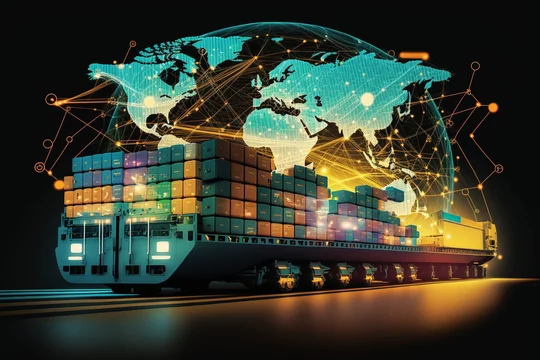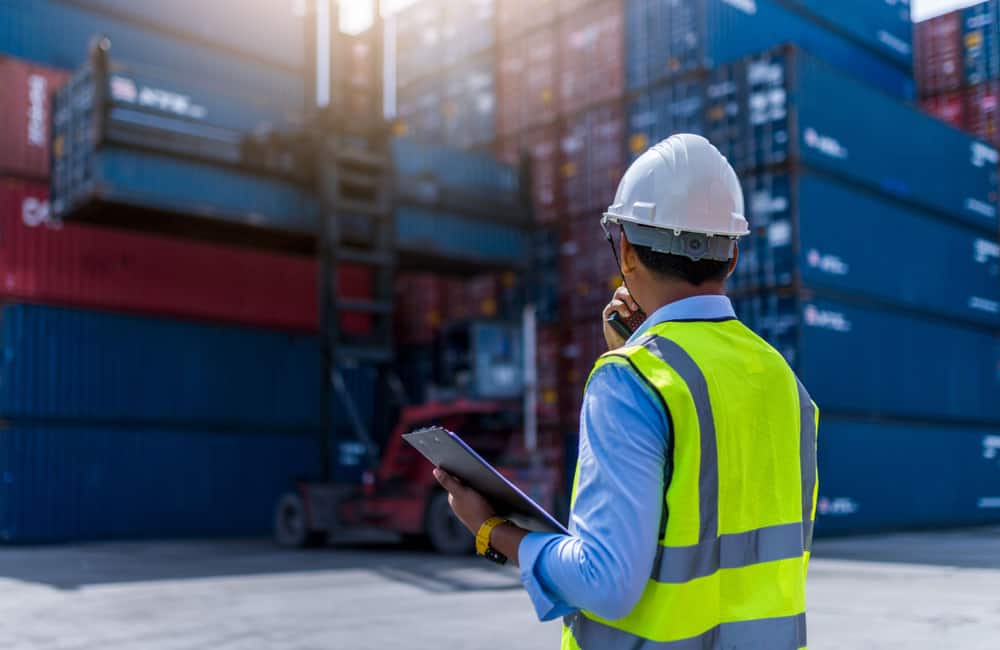In the world of international trade, every cross-border operation comes with inherent risks that can compromise both the profitability and long-term sustainability of your business. Implementing strategies to mitigate risks is essential to ensure successful operations and protect your company from unexpected threats.

Why Is It Important to Mitigate Risks in International Trade?
Companies operating globally face a number of factors that can affect the success of their transactions, including:
- Market fluctuations
- Changes in regulations and legal requirements
- Political and geopolitical risks
- Supply chain disruptions
- Cultural and language differences
Without a solid risk mitigation strategy, these threats can lead to major financial losses, legal penalties, or even the interruption of operations. Understanding and addressing these risks effectively is crucial to ensure business continuity.
6 Strategies to Mitigate Risks in International Trade
In an increasingly globalized world, international trade has become essential for many companies—yet it also involves multiple risks that must be properly handled. These risks go beyond market volatility and include political, economic, legal, and operational factors that can disrupt international operations. Poor risk management can result in major financial losses, legal sanctions, or the collapse of an entire supply chain.
The importance of implementing strategies to mitigate risks in international trade is undeniable—and even more urgent when considering the hard data showing how unmanaged risks can negatively affect organizations. According to a KPMG survey, 58% of companies involved in global trade report risks linked to customs regulation changes, while 43% face risks due to currency fluctuations. Additionally, the World Bank estimates that losses from fraud related to international trade exceed $1.5 trillion per year.
To help companies address these challenges and protect themselves from potential threats, below are the 6 strategies to mitigate risks in international trade.
1. Continuous Risk Assessment and Monitoring
One of the most important steps is to carry out ongoing assessments of the risks that may affect international operations. This includes identifying financial, geopolitical, operational, and compliance-related risks. According to Allianz’s Global Risk Report 2023, multinational companies face a 25% increase in cybersecurity threats, highlighting the need for continuous monitoring.
The use of risk-analysis tools—such as AI-powered platforms that track market variables and global policies—is essential for detecting changes or events that may negatively affect international trade activities.
2. Diversification of Suppliers and Markets
Diversification is a key strategy to mitigate risks, as it reduces dependence on a single market or supplier. A Deloitte study shows that companies relying on a single global supplier have a significantly higher chance of experiencing supply chain disruptions. During periods of economic or political uncertainty, such as those caused by the COVID-19 pandemic, diversifying supply sources and markets helps companies avoid vulnerability to sudden changes.
Diversification may include sourcing from different countries and expanding into new markets, helping reduce the impact of sanctions, embargoes, or supply interruptions.
3. Regulatory and Legal Compliance
In international trade, compliance with both local and global regulations is essential. Companies must stay updated on customs requirements, export and import rules, and international trade agreements. According to the International Trade Centre (ITC), over 30% of companies that fail to comply with international regulations face financial penalties and transaction delays.
Correct tariff classification and proper management of licenses and permits are critical areas where compliance must be strict. Additionally, continuous staff training on international laws helps reduce errors that could jeopardize operations.
4. Using Technology for Risk Management
Technology has become an essential ally for managing risks in international trade. Supply chain management platforms and blockchain systems help verify product authenticity and reduce fraud risks. Meanwhile, automation and artificial intelligence tools enhance document management, ensuring compliance with global regulations and improving accuracy in product classification.
According to McKinsey & Company, 45% of companies that adopt advanced technologies in their international trade processes report a 30% reduction in supply chain and compliance-related risks.
5. Financial Risk Management
Financial risks—such as currency volatility and market fluctuations—can directly affect profitability. Tools like financial derivatives help protect against currency movements, one of the best practices for mitigating these risks. Additionally, having adequate insurance for international cargo and transport ensures that any incident affecting the shipment does not result in major financial losses.
A Citi study found that companies using foreign-exchange hedging instruments are 60% less likely to experience losses from adverse currency movements.
6. Strengthening Relationships with Business Partners
Building trust and collaboration with business partners is a key strategy for reducing risks. This includes auditing suppliers and partners to ensure they follow the same compliance practices as your company. Sustainable supply chains and strategic alliances with local experts provide valuable insights into regulatory and political changes.
According to Nexus Risk Management Group, companies with strong supplier relationships are 40% more effective in managing risks.

How Can Companies Apply These Strategies Effectively?
Every company faces a unique set of risks depending on its operations, markets, and products. Therefore, risk-mitigation strategies must be customized to fit your business needs.
Working with foreign trade specialists and legal advisors is recommended to guide you through the implementation of these strategies and ensure full regulatory compliance.
If you want to strengthen risk management in international trade and protect your business from potential threats, EO Consulting offers legal services and specialized advisory. Our experts are ready to help you optimize international operations and ensure compliance. Contact us today!
How Can I Ensure Compliance with International Regulations?
Stay updated on international trade laws and regulatory requirements in every market where you operate. Legal guidance from specialized advisors will help you meet all local and global obligations.
What Are the Benefits of Automation for Risk Mitigation?
Automation reduces human error, ensures regulatory compliance, and improves process efficiency. It also streamlines document management and international operations.

Implementing effective strategies to mitigate risks in international trade is crucial to protecting your business and ensuring successful global operations. From continuous risk assessment to adopting advanced technology, every action you take strengthens the security and profitability of your organization.
 Blvd. Capitán Carlos Camacho Espíritu 725, Prados Agua Azul, 72430 Heroica Puebla de Zaragoza, Pue.
Blvd. Capitán Carlos Camacho Espíritu 725, Prados Agua Azul, 72430 Heroica Puebla de Zaragoza, Pue.


